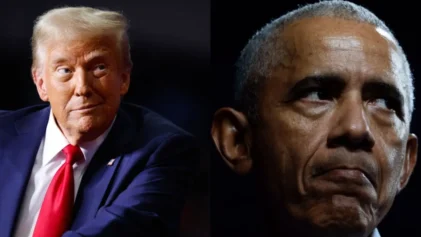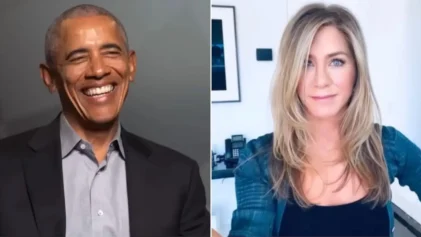
In a further sign of the unrest, Gennady Kernes, 54, the mayor of Ukraine’s second largest city of Kharkiv, was shot in the back by an unidentified gunman during a morning swim and is fighting for his life after undergoing emergency surgery.
“These sanctions represent the next stage in a calibrated effort to change Russia’s behavior,” Obama said from the Phillipines during a news conference with President Benigno S. Aquino III.
“We don’t yet know whether it is going to work,” the president added, leaving open the door open to more sweeping sanctions against Russian industries like banking and defense.
“The goal is not to go after Mr. Putin personally; the goal is to change his calculus, to encourage him to walk the walk, not just talk the talk” when it comes to diplomatic efforts to resolve the crisis, Obama said.
The president said the sanctions would affect high-tech military exports to Russia, because they are not “appropriate to be transferred in the current environment.”
The sanctions ordered by the Obama administration include travel bans and asset freezes of seven Russian officials, including two said to be in Putin’s inner circle, and frozen assets for 17 companies, according to the New York Times. In addition, 13 Russian companies face additional restrictions as the government plans to cut off the export or re-export of American-made products to them.
Additionally, the State and Commerce Departments will deny export license applications for high-technology items that could contribute to Russia’s military capabilities, in addition to revoking existing export licenses along those lines, the White House said in a statement.
Officials said the European Union will follow the U.S. with sanctions on 15 Russians.
Among those targeted by the U.S. was Igor I. Sechin, president of the state-owned Rosneft oil company and a longtime Putin adviser. Sechin is a top partner of ExxonMobil, which has multiple joint ventures with Rosneft. While it’s not clear if Sechin has any assets in the United States to freeze, he will no longer be permitted into the country to consult with his ExxonMobil partners.
“Today’s targeted sanctions, taken in close coordination with the E.U., will increase the impact we have already begun to see on Russia’s own economy as a result of Russia’s actions in Ukraine and from U.S. and international sanctions,” Jacob J. Lew, the Treasury secretary, said in a statement. “Russian economic growth forecasts have dropped sharply, capital flight has accelerated and higher borrowing costs reflect declining confidence in the market outlook.”
In response to the sanctions, Putin said the West wanted to target Russian military industries with sanctions to undermine Russia’s attempts to replace key military components that have long been produced in Ukraine. Putin said Russia would be able to replace all the imports within 18 months to 2½ years.
Substitutions would “not require a review of the defense budget,” he said.


